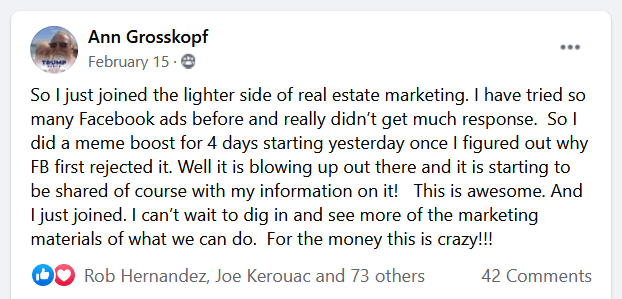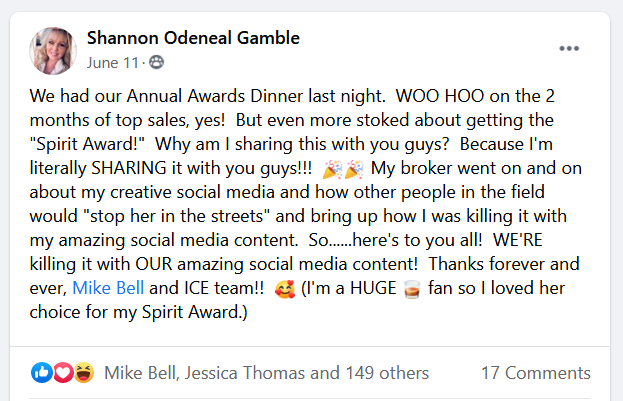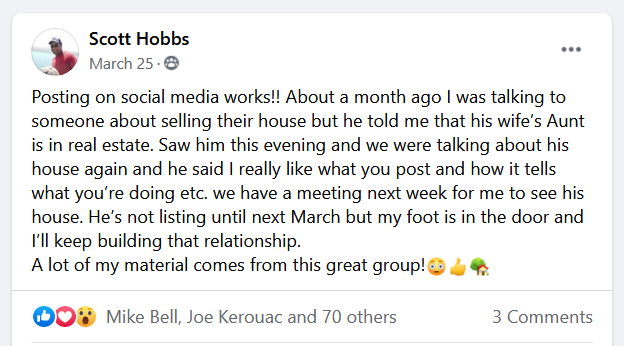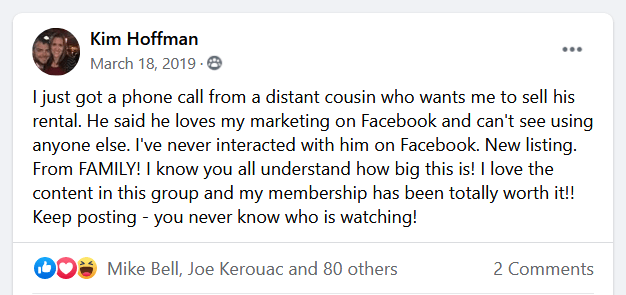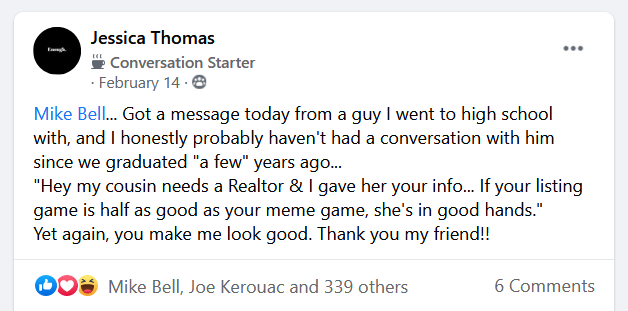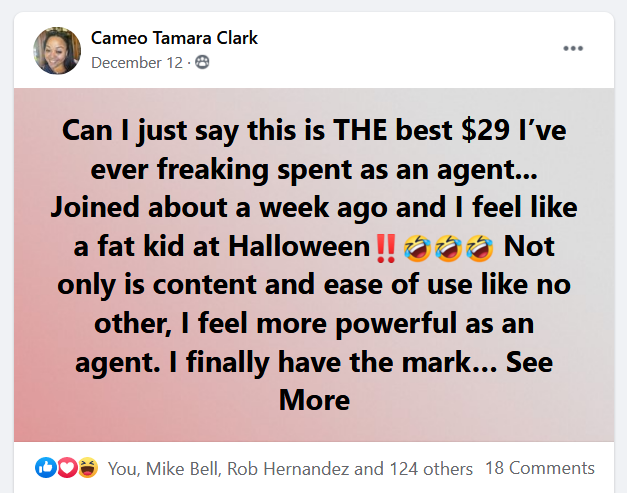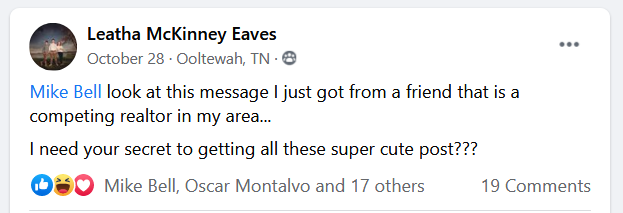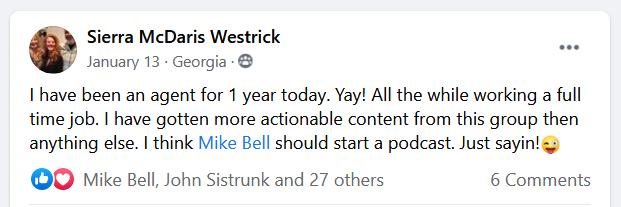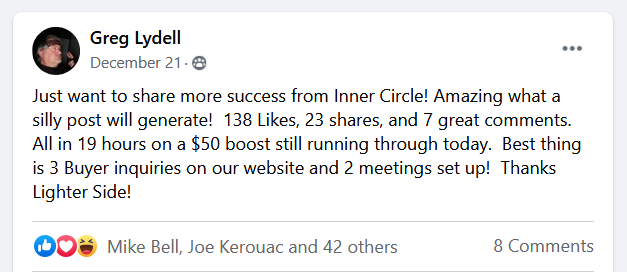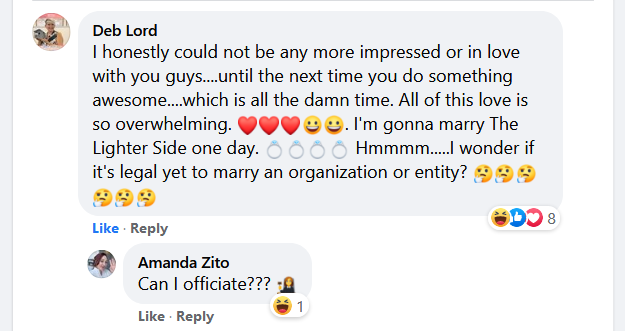
Are You An Agent Whose Entire Brand Feels… Bleh?
Hello dearest real estate friend. Glad you could make it today. What I want to do here is simple – convince you to be yourself.


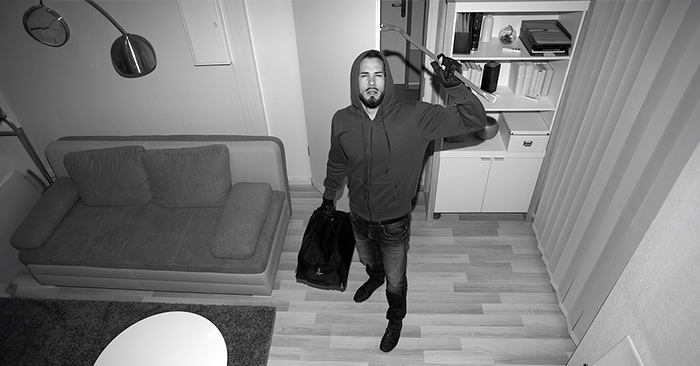
When you hear the term “squatters” you probably picture them in an abandoned, run down place with no heat, electricity, or furnishings, and most likely in a high crime or depressed area. As for the actual squatters, you probably envision homeless people or drug addicts who broke in through a backdoor or broken window, crashing on an old mattress and surrounded by trash.
Those are certainly accurate assumptions in some cases, and most likely what you’d see depicted on TV or movies. But squatters — and the houses they choose to squat in — don’t always resemble that description. On the contrary, your house could become a squatter’s home without you (or your neighbors) even noticing it… until it’s too late.
For example, a recent realtor.com article gave an account of a Georgia woman who listed her house for rent after moving in with her fiance. The first day it was on the market, her neighbors saw a moving truck pull up, and watched a mom and her two children moving in.
Fortunately the neighbors mentioned it to the owner, because as far as she knew, her house hadn’t been rented yet! She reported the activity to local police, but the new tenant whipped out a lease that appeared to be legitimate and signed by the owner. Despite the fact that the owner denied having signed the lease, the authorities let the intruder stay, and left the owner to deal with it as a civil matter, rather than a criminal one.
The good news is that the owner was able to act quickly, and her attorney was able to help her get the squatters out in a mere three months. It could’ve been much worse! It often takes a lot longer to get squatters out depending on the legal tactics of the squatter, and the local laws and court system. During the time it takes, the owner is paying property taxes, probably a mortgage, legal fees, and all the while the squatters are potentially damaging the home, or at least enjoying it as their own, until they absolutely have to leave.
Difficult economic conditions and higher rent are the main reasons cited for an increase in squatters. It may be further complicated by the pandemic, which put many people out of work, and gave tenants a period of time where they could not pay rent or worry about rent increases. But once things got back to “normal,” more people were in desperate housing situations.
But that alone probably wouldn’t have tipped the scales without more access to information that squatters can use to skirt the system. There are private groups people can join on social media to learn the ins and outs of their “rights” as a squatter. And for those who want a more turn-key solution, there have even been instances of people running businesses that help people find a home to squat in for a small fee. 1 Time Payment Homes is one such example, which marketed their services on Instagram until a news team exposed them.
It doesn’t help that police often can’t (or won’t) be much help, because if the so-called tenant shows them a lease, they have to basically trust that it’s legitimate and leave the owner to pursue it further as if they were simply evicting a tenant they’d entered into a legal agreement with.
Ultimately, someone intent on squatting knows that they have the upper hand in terms of time and the law and can drag it out for as long as possible, living for free in the meantime.
Do you have to worry about coming home and finding squatters have moved in if you go to work, run errands, or out for a night on the town? Highly unlikely. In fact, it’s probably not something you have to worry about if you just go on a vacation and leave your home vacant for a week or two. It isn’t like squatters are just cruising random streets and stalking your house waiting for you to leave for a little while.
More often than not it happens when a house is listed for rent or for sale, and squatters can tell by looking at the pictures and marketing that it is most likely vacant. They’re looking for good indications that nobody is living there, and a situation that will provide them a plausible explanation for why they’ve moved in if the police come knocking.
But it could happen even if your home isn’t listed for rent or sale if there are other indications a squatter notices that point to your house being vacant and unwatched. So if you have a property that you own but don’t live in, you should also take precautions.
As mentioned earlier, once a squatter has moved in, it can take months and a lot of time and money to get rid of them. So preventing them from moving in at all is the best approach. Here are some steps you can take to make your property less likely to be occupied by squatters:
The Takeaway:
Squatters are often thought of as being homeless, or drug addicted people who occupy dilapidated buildings in depressed or high crime areas. But it’s now a problem affecting even well-maintained homes in neighborhoods filled with owner-occupied homes, perpetrated by people who look like they actually belong in the house. Economic hardships and increased access to information have contributed to this trend, with squatters exploiting legal loopholes and leveraging social media to their advantage.
It can take a lot of time and money to go through the legal system and evict a squatter, so your best bet is to prevent them from ever entering your home by making sure it’s secure, installing security cameras, regular visits to the property, and making it look like someone is living there.

(Shh, our secret)
Show your sphere your an expert. We have over 2100 articles covering every real estate topic your audience will love.
Position yourself as a real estate authority!
Real estate + topical events — the perfect match!
Become the bearer of good vibes!
Because hey, everyone loves to laugh!



Get our weekly email that makes communicating with your sphere on social actually enjoyable. Stay informed and entertained, for free.

Hello dearest real estate friend. Glad you could make it today. What I want to do here is simple – convince you to be yourself.

Being a team leader can be like being a bird bringing back food to feed a nest full of hungry babies. Without you feeding leads
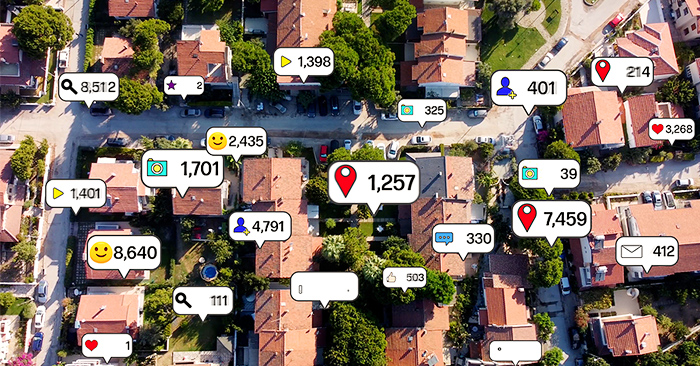
Most real estate agents use social media as a means of marketing themselves, at least to some degree. Some agents are able to build a

Listing your first house can take some time when you get into real estate. And we’re not talkin’ just weeks or months—it can take years!

First and foremost, no, this article wasn’t written using artificial intelligence. Or does that sound exactly like something AI would say to throw you off
Depending on your situation, it may not take the full 30 minutes.

This reset password link has expired. Check the latest email sent to you.

